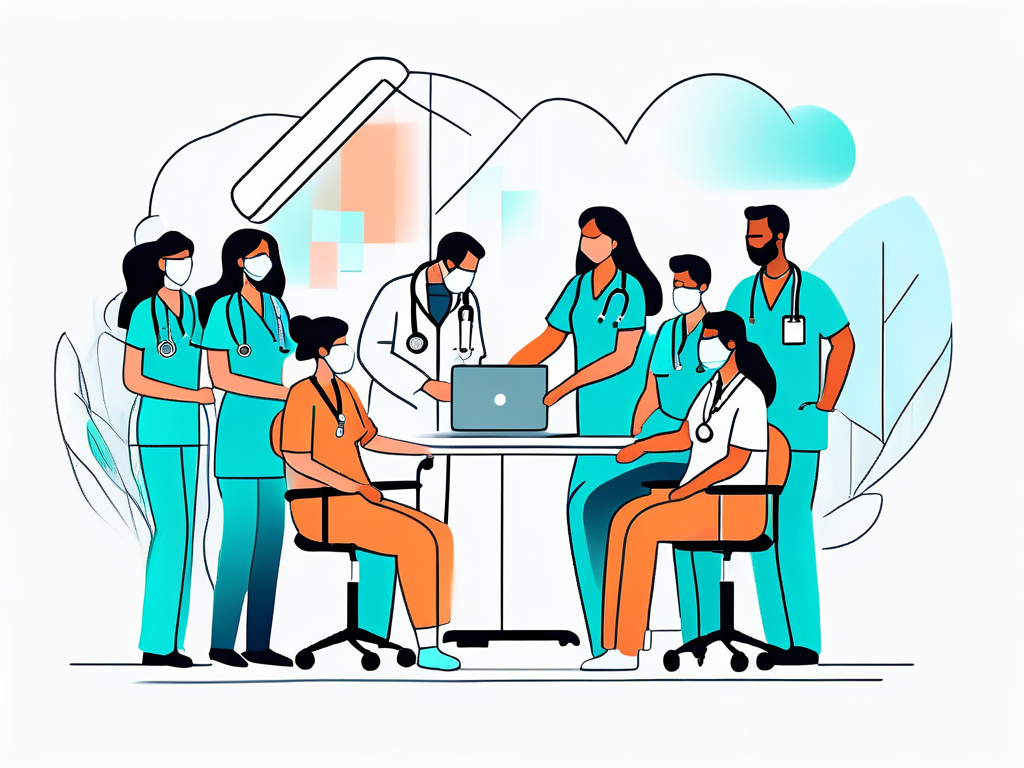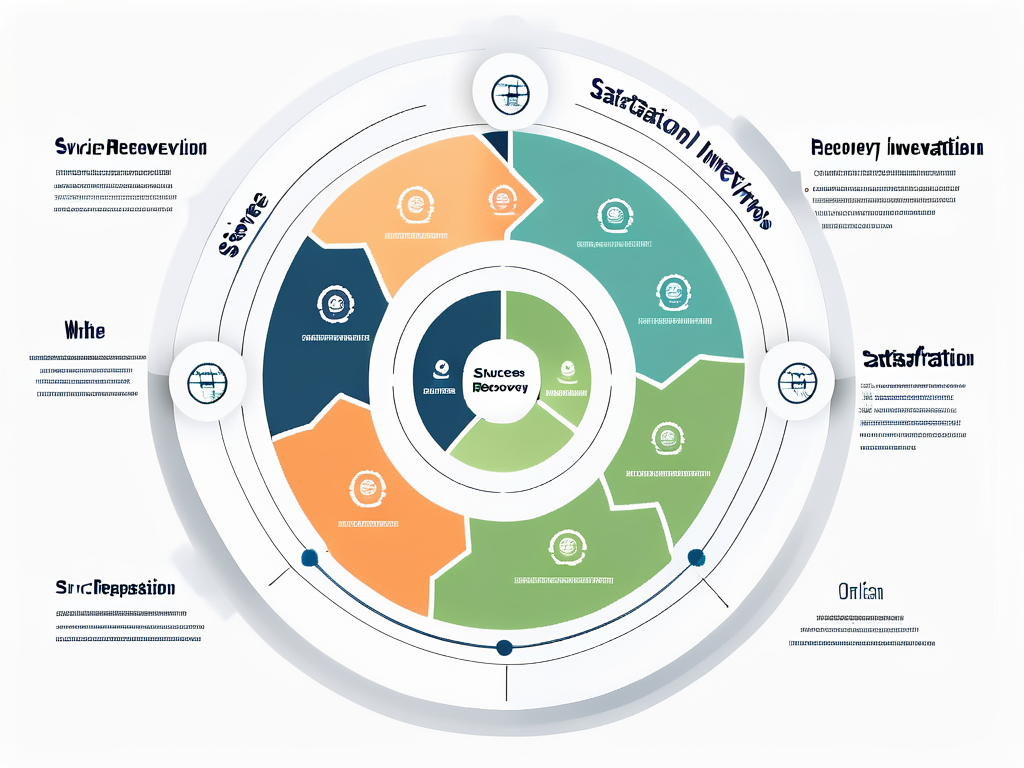In the ever-evolving landscape of healthcare, the concept of service recovery has gained significant importance in ensuring patient satisfaction and delivering high-quality care. Service recovery refers to the process of addressing and resolving any service failures or patient concerns promptly and effectively. It is a crucial aspect of patient care that can help build trust, enhance patient loyalty, and ultimately improve outcomes.
Understanding the Concept of Service Recovery
Before delving into the intricacies of service recovery in healthcare, it is essential to define what it entails. In the context of healthcare, service recovery refers to the proactive and reactive strategies implemented to rectify any negative patient experiences or service failures. It involves identifying the issue, taking swift action, and restoring the patient’s confidence in the healthcare provider.
Service recovery in healthcare encompasses a range of actions and initiatives aimed at resolving patient complaints, addressing grievances, and mitigating any potential harm caused by service gaps. It goes beyond simply acknowledging errors and involves actively working towards rectifying the situation and preventing future occurrences. In a healthcare setting, service recovery is not just about fixing a mistake; it is about rebuilding trust and maintaining the patient-provider relationship.
Defining Service Recovery in Healthcare
Service recovery in healthcare encompasses a range of actions and initiatives aimed at resolving patient complaints, addressing grievances, and mitigating any potential harm caused by service gaps. It goes beyond simply acknowledging errors and involves actively working towards rectifying the situation and preventing future occurrences.
Healthcare organizations that prioritize service recovery understand that patient satisfaction is closely linked to the quality of care provided. By promptly addressing issues and concerns raised by patients, healthcare providers can not only resolve immediate problems but also identify areas for improvement within their systems and processes. This proactive approach to service recovery can lead to a culture of continuous quality enhancement and patient-centered care.
The Importance of Service Recovery in Patient Care
The significance of service recovery in healthcare cannot be overstated. By promptly addressing patient concerns, healthcare providers demonstrate their commitment to patient-centered care and their willingness to rectify any shortcomings. Effective service recovery can promote patient satisfaction, trust, and loyalty, contributing to positive patient experiences and improved outcomes.
Furthermore, service recovery plays a crucial role in risk management within healthcare organizations. By addressing and resolving issues in a timely and effective manner, healthcare providers can prevent potential legal ramifications, regulatory penalties, and reputational damage. Service recovery strategies that prioritize transparency, accountability, and patient empowerment can help mitigate risks and foster a culture of safety and excellence in patient care.
The Role of Healthcare Professionals in Service Recovery
While service recovery involves the whole healthcare team, healthcare professionals, including doctors and nurses, play a vital role in the process. Their interactions with patients and their delivery of care are central to patient experiences and, consequently, the need for service recovery.

Doctors and nurses are at the forefront of patient care, making their roles in service recovery crucial. These healthcare professionals should strive to foster open communication with patients, actively listen to their concerns, and address any issues promptly and compassionately. By taking ownership of service recovery, doctors and nurses can strengthen patient-provider relationships and ensure better patient outcomes.
Responsibilities of Doctors and Nurses
Doctors and nurses not only provide medical treatment but also serve as advocates for patients within the healthcare system. They must navigate complex medical decisions while also considering the emotional and psychological well-being of their patients. In service recovery, doctors and nurses must go beyond clinical expertise to demonstrate empathy, patience, and understanding towards patients who have faced challenges in their care journey.
The Impact of Administrative Staff
While doctors and nurses have direct patient interactions, the involvement of administrative staff in service recovery should not be overlooked. Administrative staff play a crucial role in the patient experience by managing appointments, handling paperwork, and coordinating behind-the-scenes operations. Their attention to detail and organizational skills contribute to the overall efficiency of healthcare services and can significantly impact how smoothly service recovery processes are executed.
Administrative staff can contribute to service recovery efforts by ensuring efficient appointment scheduling, maintaining clear communication channels, and addressing any administrative hurdles patients may face. Their support is integral to ensuring a seamless service recovery process.
Key Elements of a Successful Service Recovery Program
To establish an effective service recovery program, healthcare practices need to focus on several key elements that lay the foundation for success.

Service recovery in healthcare is a crucial aspect of patient satisfaction and retention. It involves the processes and strategies put in place to address and resolve any service failures or patient concerns effectively. By prioritizing service recovery, healthcare providers can not only retain existing patients but also build a reputation for excellent customer service in the industry.
Patient Communication and Feedback
Open and transparent communication with patients is fundamental to successful service recovery. Healthcare providers should actively seek feedback, both formal and informal, to identify areas for improvement and address patient concerns promptly. Regular patient surveys, suggestion boxes, and patient advisory councils can provide valuable insights for service recovery initiatives. Moreover, implementing a robust communication system that allows patients to voice their concerns and receive timely responses can significantly enhance patient satisfaction and trust in the healthcare provider.
Furthermore, personalized communication strategies tailored to individual patient needs and preferences can make the service recovery process more effective. By understanding each patient’s unique concerns and communication style, healthcare providers can tailor their responses and solutions to meet the specific needs of the individual, leading to a more personalized and satisfactory service recovery experience.
Staff Training and Development
A well-trained and empathetic healthcare team is essential for successful service recovery. Regular staff training programs should focus on effective communication skills, conflict resolution, and customer service techniques. By investing in their staff’s professional development, healthcare practices can equip their team to handle service failures with confidence and empathy. Additionally, ongoing training and development opportunities not only enhance the skills and knowledge of healthcare staff but also boost morale and job satisfaction, leading to a more engaged and motivated team.
Moreover, creating a culture of continuous learning and improvement within the healthcare organization can foster innovation and creativity in service recovery approaches. Encouraging staff members to share their experiences, best practices, and lessons learned from service recovery situations can help create a supportive environment where team members collaborate and learn from each other’s successes and challenges.
Implementing Service Recovery in Your Practice
When implementing a service recovery program in your healthcare practice, it is important to follow a structured approach that ensures its successful integration.
Steps to Initiate a Service Recovery Program
Starting a service recovery program requires a systematic approach. Begin by identifying the specific service gaps, mapping out the patient journey, and establishing effective communication channels to gather patient feedback. Implement complaint resolution protocols, establish escalation processes, and develop staff training programs tailored to service recovery. Regularly review and assess the program’s effectiveness and make necessary adjustments to optimize outcomes.
Overcoming Potential Challenges in Implementation
Implementing a service recovery program may face challenges along the way. Resistance to change, lack of staff buy-in, and resource constraints can pose obstacles. However, by emphasizing the benefits of service recovery, aligning it with organizational goals, and involving all stakeholders in the process, these challenges can be overcome. Continuous communication, training, and support will pave the way for successful implementation.
Evaluating the Effectiveness of Your Service Recovery Program
Regular assessment of the effectiveness of your service recovery program is vital to its success and continuous improvement.
Key Performance Indicators for Service Recovery
Identifying and tracking key performance indicators (KPIs) can help evaluate the impact of your service recovery program. Metrics such as patient satisfaction scores, complaint resolution time, and reoccurrence of service failures can provide valuable insights into the program’s effectiveness and guide necessary interventions.
Continuous Improvement and Adaptation in Service Recovery
Service recovery is an ongoing process that requires adaptability and continuous improvement. Regularly review patient feedback, conduct regular training sessions, and engage in open discussions with the healthcare team to identify areas for improvement. Be open to adjustments and ensure the service recovery program aligns with changing patient expectations and industry best practices.
Implementing a robust service recovery program in your healthcare practice can have far-reaching benefits. By acknowledging and addressing service failures promptly, healthcare providers can enhance patient satisfaction, build patient loyalty, and contribute to improved outcomes. Remember, service recovery is not just about fixing mistakes; it is about consistently delivering exceptional patient care.

Ready to elevate your practice and enhance patient care even further? Join the Wellth Daily community and subscribe to our free newsletter. Each weekday, you’ll receive a concise, 2-minute read packed with innovative tips to grow your practice beyond just word-of-mouth. Plus, you’ll gain access to exclusive, beautifully designed clinic resources to help you attract and retain patients with ease. Don’t miss out on the opportunity to learn from a vibrant network of health professionals committed to success. Subscribe FREE today and start transforming your practice with our daily clinic growth tips!
